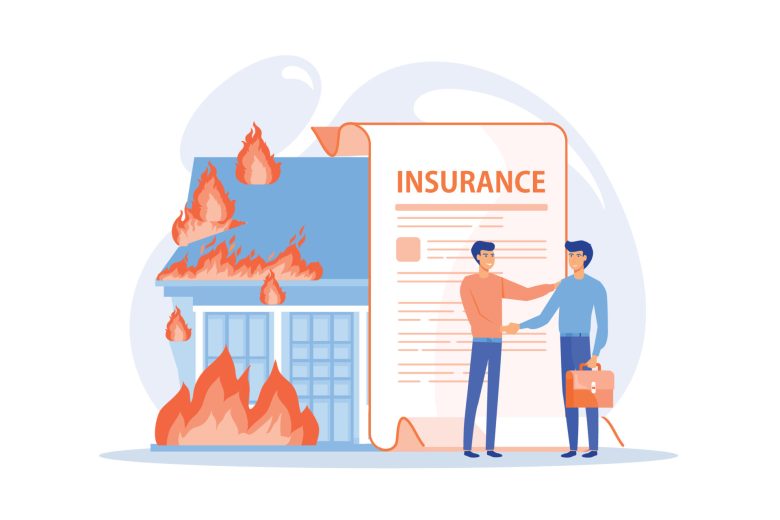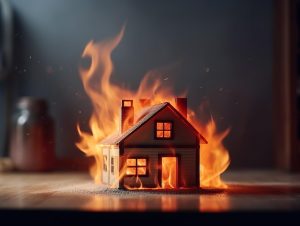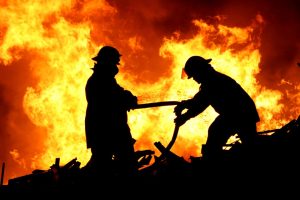Fire insurance is an important part of risk management for home and business owners. Home fire insurance and commercial fire insurance differ greatly in how they work and what they cover, but their main purpose is the same: to protect you financially against fire-related damage. In this guide, we discuss the differences between home fire insurance and business fire insurance. We’ll look at the key factors that influence the coverage, rates, and overall suitability of the different risks each institution offers.
Coverage:
Home Fire Insurance
Home fire insurance is specifically designed to protect your home. It typically covers damage to the structure of the home, your belongings, additional living expenses if you have to move, and liability protection. Ensuring the safety of the homeowner’s home and property is the primary goal.
Commercial Fire Insurance
Businesses can obtain fire protection through commercial fire insurance. It doesn’t just include the building itself; it also includes inventory, tools, furniture, etc. Business interruption insurance is an important part. This ensures that you have financial resources if you have to temporarily cease your activities due to fire damage.
Business Interruption Coverage:
Home Fire Insurance
Home fire insurance generally does not cover business losses because its primary purpose is to protect the home. While it can help with temporary housing, it won’t help with the loss of income resulting from not being able to run a business.
Commercial Fire Insurance
Business interruption coverage is an important part of commercial fire insurance. This portion helps cover lost income, running costs, and possible moving costs if a fire prevents the business from operating normally. This is very important to maintain economic stability during the recovery phase.
Disclaimer Protection:
Home Fire Insurance
Liability protection with home fire insurance protects landlords from paying medical bills and legal fees if someone is injured on their property. It ensures that resources are available for defense in court and for any settlements arising from liability claims.
Commercial Fire Insurance
Liability coverage is also part of commercial fire insurance but has broader coverage. It covers injuries to people and damage to property for which a company may be responsible. This is important when dealing with third-party claims arising from business practices.
Inventory and Equipment Coverage:
Home Fire Insurance
Personal belongings are usually covered by fire insurance, but the amount can vary. Jewelry and other valuable items may require additional recognition. Inventory and tools used for business purposes are generally not included.
Commercial Fire Insurance
When a business has fire insurance, it protects its assets and other important resources needed to operate. This includes inventory, tools, computers and other items necessary for daily business operations. Coverage limits are designed to meet the needs of the business.
Determinants of Premiums:
Home Fire Insurance
Fire insurance rates are affected by the location of the home, the materials used to build the home, the safety measures taken, and the homeowner’s previous damage experience. The risks of living at home often influence the premium.
Commercial Fire Insurance
Commercial fire insurance rates are influenced by factors such as the type of business, sector risk, location of the property, safety measures taken, and the company’s claims history. Premiums are also affected by company size and profitability.
How to Use and Zone Property:
Home Fire Insurance
When you take out fire insurance, the company considers the property occupied. Residential zoning laws are taken into account when determining coverage and premiums.
Commercial Fire Insurance
Commercial fire insurance takes into account the zoning plan and commercial use of the property. When determining risks and security needs, the type of business and the extent to which security rules and regulations are adhered to become very important.
Building Rules and Codes:
Home Fire Insurance
Home fire insurance takes your area’s building codes and regulations into account when deciding what to cover. But the main focus is on the safety and construction standards of the house.
Commercial Fire Insurance
Commercial fire insurance delves into the rules and codes that apply to commercial buildings. For good coverage it is necessary that these rules are complied with.
Company Size and Complexity:
Home Fire Insurance
Home fire insurance is offered to people who own their own home and family. Easy to use, suitable for homes with simple needs.
Commercial Fire Insurance
Businesses ranging from small stores to large corporations can purchase commercial fire insurance. This coverage is designed to meet the needs and complexities of all types of businesses and in a variety of industries.
Risks to Consider:
Home Fire Insurance
Home fire insurance primarily covers fire risks, but you can also obtain additional coverage for natural disasters, for example, if desired. The only risks covered are those arising from the home.
Commercial Fire Insurance
Commercial fire insurance covers more types of disasters, such as fire, flood, earthquake, theft, and other risks common to businesses. This comprehensive approach takes into account all the different types of risks a company may face.
Conclusion:
To get the right coverage, it’s important to understand the subtle differences between residential fire insurance and commercial fire insurance. Both are intended to alleviate the financial impact of fire-related losses, but their coverage, premiums and other factors obviously differ. Both home and business owners should carefully consider their specific needs and the risks posed by the property. They should then work with an insurance professional to create a policy that protects them comprehensively and effectively. Having the right fire insurance for your home or business can give you peace of mind and financial strength if the unexpected happens.



